Cloud in Agriculture
Cloud computing in agriculture refers to the use of cloud-based wireless sensors and machine learning algorithms to monitor and optimize everything from equipment and fertilizer to water and soil. Often cloud computing is used to collect, analyze and store agriculture data. This helps farmers fine-tune their operations to pursue more profits, less pollution, and mitigate their environmental impact by engaging in climate-friendly farming practices like organic farming, which uses less energy and produces less pollution than conventional farming, and carbon sequestration, whereby they plant crops that naturally remove carbon dioxide from the air and store it in the soil. Cloud computing can also be used to aggregate data from tools like soil sensors, satellite images, and weather stations to help farmers make better decisions about managing their crops. The cloud’s analytical capabilities also aid farmers in understanding their production environment .
 The cloud computing environment is an offshoot of the traditional common computing environment with a mission. Cloud computing is driven by factors such as aging of the current IT infrastructure and changes in IT landscape. Refreshing the infrastructure is restricted due to limited capital investments. Virtualisation and cloud computing have transformed how the IT services are delivered at a lower cost by migrating the services to cloud computing. IT-enabled agricultural farming, such as precision farming, is information intensive, which can impact the rural economy.
Therefore, the future growth of agriculture depends how the new technologies such as cloud computing are adopted with a focus on farmer needs. The use of appropriate technologies should help a farmer in terms of accessibility and affordability. Cloud computing in agriculture provides an enabling environment for innovation and services with a flexible regulatory environment.
The cloud computing environment is an offshoot of the traditional common computing environment with a mission. Cloud computing is driven by factors such as aging of the current IT infrastructure and changes in IT landscape. Refreshing the infrastructure is restricted due to limited capital investments. Virtualisation and cloud computing have transformed how the IT services are delivered at a lower cost by migrating the services to cloud computing. IT-enabled agricultural farming, such as precision farming, is information intensive, which can impact the rural economy.
Therefore, the future growth of agriculture depends how the new technologies such as cloud computing are adopted with a focus on farmer needs. The use of appropriate technologies should help a farmer in terms of accessibility and affordability. Cloud computing in agriculture provides an enabling environment for innovation and services with a flexible regulatory environment.
Cloud computing and agricultural development
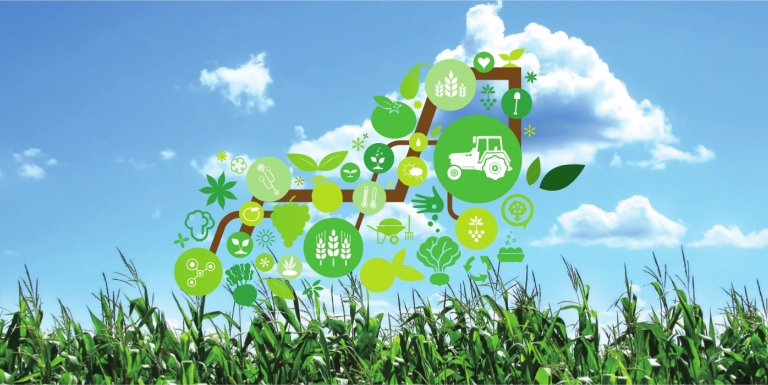 The relationship between Cloud
computing and agricultural development
The applications of cloud computing technology in
agriculture can solve the bottleneck problem of
agricultural modernization and agricultural information,
and can also break agricultural producers’ limitations in
knowledge or technology, reduce duplication, improve
utilization of existing resources to make up for
dispersed, small-scale, regional differences agricultural
production and the strong dependence on the natural
climate vulnerability of agricultural production.
Modernizations of agriculture include three aspects:
The relationship between Cloud
computing and agricultural development
The applications of cloud computing technology in
agriculture can solve the bottleneck problem of
agricultural modernization and agricultural information,
and can also break agricultural producers’ limitations in
knowledge or technology, reduce duplication, improve
utilization of existing resources to make up for
dispersed, small-scale, regional differences agricultural
production and the strong dependence on the natural
climate vulnerability of agricultural production.
Modernizations of agriculture include three aspects:
- Widely use modern agriculture production equipment, agricultural machinery;
- Extensively use modern agricultural planting and breeding technology, weather observation and forecasting;
- Use modern forms of production organization and management methods, etc.
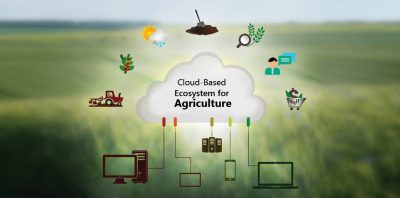 Seen from the development of agriculture, the
agricultural mechanization goal has been basically
achieved, but there are still many outstanding issues in
technology and management, such as fewer agricultural
technology service organizations and personnel, less
necessary technical guidance, especially in the
breeding, pollution-free crop cultivation and livestock
breeding, soil testing, fertilizer, irrigation and soil
improvement, meteorological observations and weather
forecast were not enough technical support, most of
farmers are in a state of blind conformity.
Organizational form of production in agriculture is
relatively simple, backward, and a low degree of
specialization of agricultural production areas, it is
difficult to achieve Integrating Agriculture. In addition,
due to the limitations of the farmers at market
forecasting, business decision-making, information
gathering and logistics management capacity is more
lacking; it often leads to a mismatch between the
supply and demand, not only damages the farmers’ own
interests, have also hindered the healthy development
of the market supply and demand.
Seen from the development of agriculture, the
agricultural mechanization goal has been basically
achieved, but there are still many outstanding issues in
technology and management, such as fewer agricultural
technology service organizations and personnel, less
necessary technical guidance, especially in the
breeding, pollution-free crop cultivation and livestock
breeding, soil testing, fertilizer, irrigation and soil
improvement, meteorological observations and weather
forecast were not enough technical support, most of
farmers are in a state of blind conformity.
Organizational form of production in agriculture is
relatively simple, backward, and a low degree of
specialization of agricultural production areas, it is
difficult to achieve Integrating Agriculture. In addition,
due to the limitations of the farmers at market
forecasting, business decision-making, information
gathering and logistics management capacity is more
lacking; it often leads to a mismatch between the
supply and demand, not only damages the farmers’ own
interests, have also hindered the healthy development
of the market supply and demand. 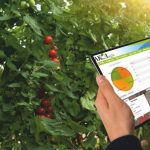

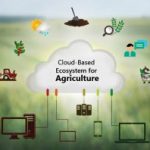



Advantages
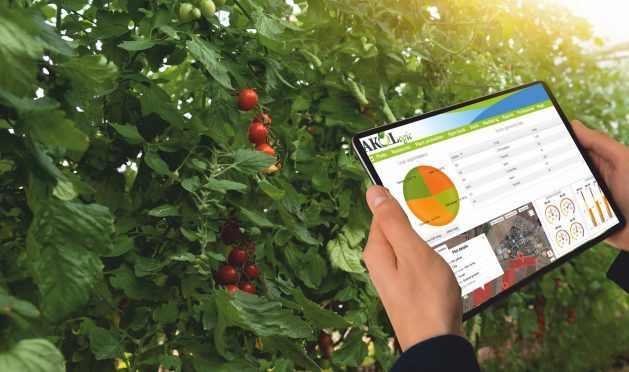
- Data management: The data will be managed by the service provider, a team of professionals. That guarantees a better and organized management of data.
- Data readiness: This provides data from the e-data bank databases to its entire stakeholder at any time and at any location.
- Local and global Communication: This makes the communication between different users much faster, easier and cheaper. Also the communication will be secured.
- Rural-urban migration: A major problem of Andhra Pradesh is rural-urban migration. It can be reduced as this provides its services all over the state and may also all over country at any time no matter how remote the place is. This will also help in controlling unemployment problem in the state and country.
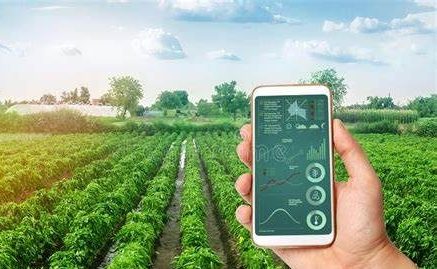
- Motivation: It will motivate the farmers and researchers to get involved more and more into agriculture as any communication will be result oriented. That will result in overall development of this sector in the nation.
- Security: It provides an enhanced security as the resources will be stored in cloud and will be maintained centrally by the service providers. Thus, it is not a cause of concern for its users.
- Reduction of technical issues: It cuts short the man power, maintenance and infrastructure requirement drastically, as it will be provided by the service providers.
- Overall economy: Implementation of cloud computing in agriculture sector will help in uplifting the agricultural sector of the country. That will boost the overall development of the economy. It is due to the mass involvement of different stakeholders, as the system will monitor and deliver progress report whenever and wherever needed.
